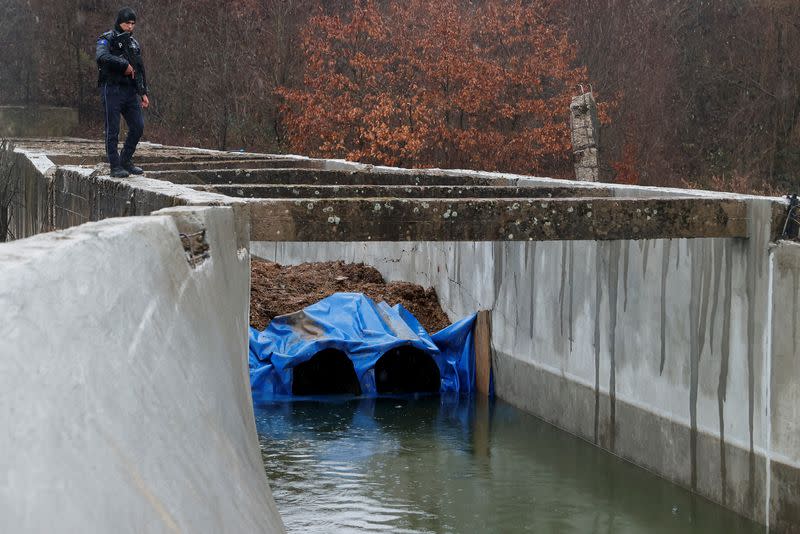Editorial: Urgent EU and US action required in Kosovo following the Zubin Potok canal attack

Friday’s terrorist attack on the water canal in Zubin Potok in northern Kosovo, underscores the fragile state of stability in Kosovo.
The Zubin Potok canal attack is emblematic of the simmering tensions that periodically erupt into violence, threatening not only local stability but also regional security.
Water and energy infrastructure, such as the canal targeted in this attack, is a lifeline for communities. The deliberate sabotage of such resources exacerbates interethnic mistrust and signals a dangerous willingness to target civilians indirectly. This act must be viewed not in isolation but as part of a broader pattern of provocations and retaliations in the country’s north where ethnic Serbs align politically with Belgrade.
The latest crisis not only highlights the persistent ethnic tensions in the country but also raises urgent questions about the role of the European Union (EU) and the United States in preventing further escalation.
As the situation grows increasingly precarious, decisive intervention by these actors is essential to avert a potential crisis. Persistent tension in the country’s north and the potential for further escalation demonstrate that the current EU and US approach is unable to address deep-rooted ethnic divisions or to resolve the core dispute between Belgrade and Pristina.
The limitations of current strategies have become evident. EU-led negotiations facilitated by the EU have produced no progress, always stalling on key issues. US diplomacy, while often more assertive, has struggled to bring about substantive breakthroughs. The time has come for both actors to adopt a more coordinated and decisive approach.
Immediate action is necessary for two main reasons:
- The risk of escalation: the potential for escalation is real and dangerous. Incidents like the canal attack can trigger cycles of retaliation, drawing in paramilitary groups, nationalist rhetoric, and potentially state actors. Such events can spiral out of control, destabilizing the broader Balkans.
- Erosion of EU and US credibility: inaction risks undermining the credibility of the EU and US as guarantors of Kosovo’s sovereignty and stability. Failing to act robustly could embolden hardline elements on both sides, further eroding trust in international mediation efforts.
To address the crisis effectively, the EU and US must, firstly, convey a clear message that terrorist acts will not be tolerated. The latest attack in north Kosovo demonstrates that EU and US failure to send such a clear message to Serbia and to the Serbs of Kosovo in relation to the attack in Banjska on September 24, 2023, has emboldened terrorist elements and their supporters.
Secondly, a new approach to the dialogue is urgently needed. A first step should be the lifting of EU sanctions against Kosovo as recommended by the EU High Representative for Foreign and Security Policy.
The Brussels dialogue must be reinvigorated with greater US involvement. And most importantly, the dialogue needs to focus on Kosovo’s recognition. This objective of the dialogue must be clear and explicitly stated. The so-called “constructive ambiguity” on the objective of the dialogue seems to have reached its limit. Conflicting interpretations of the accepted agreements by the two parties have prevented any implementation of the commitments made in the course of the dialogue.
Failure to act now risks not only the stability of Kosovo but also the credibility of international efforts to maintain peace in one of Europe’s most sensitive regions.


